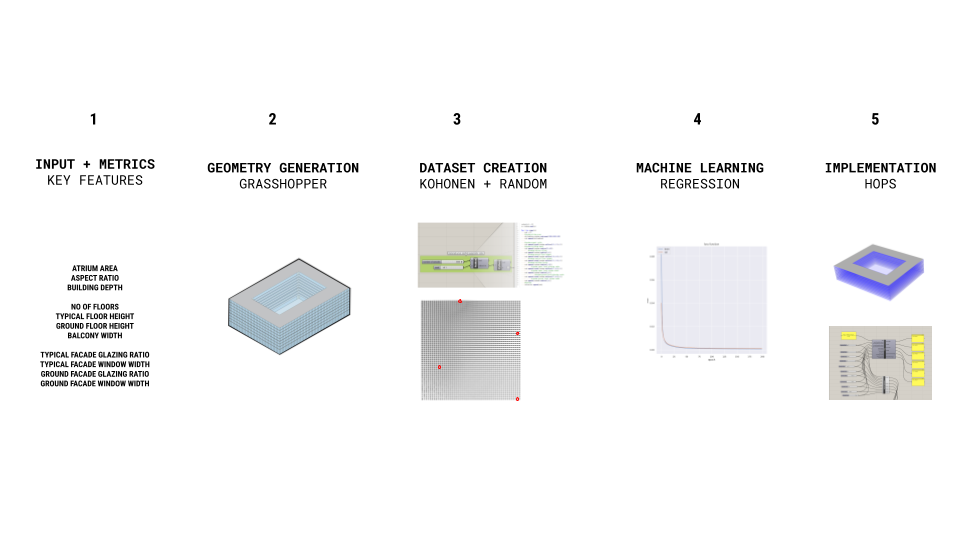DAYLIGHTING PREDICTION FOR ATRIUMS: LEED IEQ- Approach
Atrium spaces globally form an integral part of many public buildings and have a great impact both psychologically and environmentally on the spaces they form. The ability to rapidly assess the physical form and environmental impact simultaneously while adhering to internationally recognized green building rating systems could prove to be invaluable in early-stage design. To fulfill indoor environmental quality (IEQ) requirements on green building rating systems like LEED, certain specifications are needed which can be time-consuming to calculate.

Through the generation of datasets recording key geometric features of atriums and their relationship to environmental predictions including daylighting, thermal comfort and view quality, a database is created to allow Machine Learning algorithms to predict ratings more quickly than manual simulations. In this case, regression using artificial neural networks is used to predict the environmental output of a varied range of standard atrium types and as a result calculate what criteria is met to give points score.
In combination with parametric modeling software like Grasshopper and live connections to machine learning libraries like Tensor Flow through plugins like Hops, a trained and simulated atrium model can provide instant LEED’s score as the atrium is configured by the designer.
Daylighting for Atriums is a project of IAAC, Institute for Advanced Architecture of Catalonia developed at Master in Advanced Computation for Architecture & Design in 2021/22 by: STUDENTS: MICHAL GRYKO + SAMMAR ALLAM SENIOR FACULTY: GABRIELLA ROSSI FACULTY ASSISTANT: HESHAM SHAWQY
Blog: https://www.iaacblog.com/programs/daylighting-prediction-atriums-leed-ieq-approach/